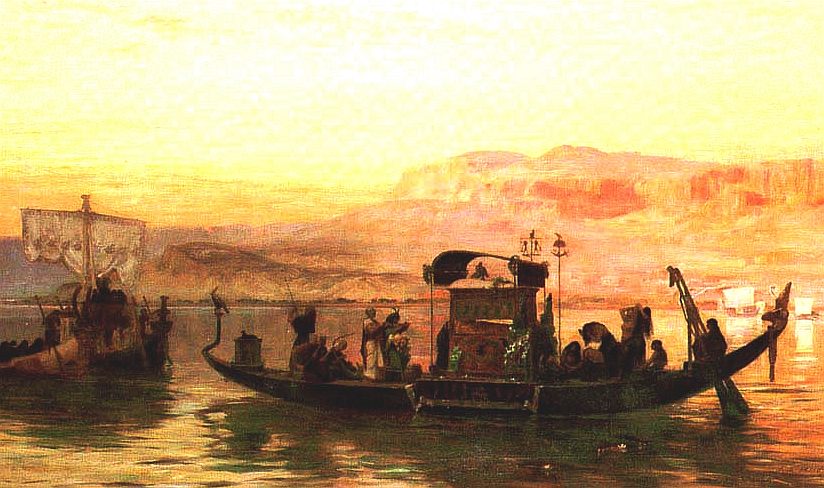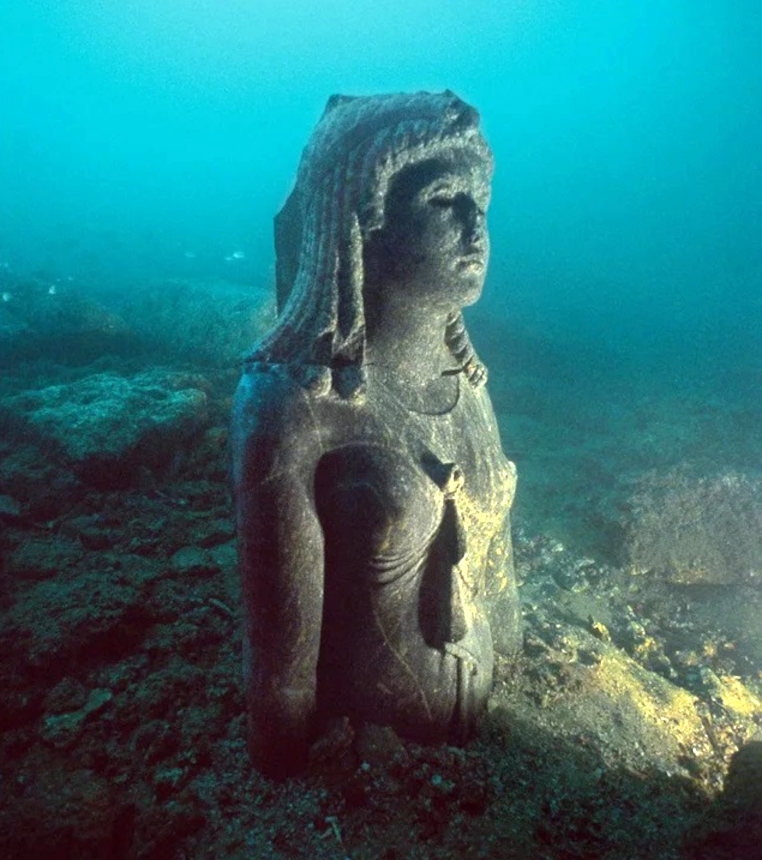
Cleopatra's
tomb has never been discovered. Yet she is one of the most
famous Pharaohs, ruling as Queen of Egypt more successfully
than her forebears.
What
lost treasures might we discover as the mysteries of the
deep unfold, armed with new underwater technology and an
army of freshly educated researchers with an interest in the
deep.
ATLANTIS -
MEDITERRANEAN SEA
ATLIT-YAM -
ISRAEL
BAIA -
ITALY
DWARKA -
INDIA
PAVLOPETRI -
GREECE
PHANAGORIA -
BLACK SEA
PORT
ROYAL - JAMAICA
RUNGHOLT -
DENMARK
THONIS-HERACLEION
AND ALEXANDRIA - EGYPT
YONAGUNI
JIMA - JAPAN
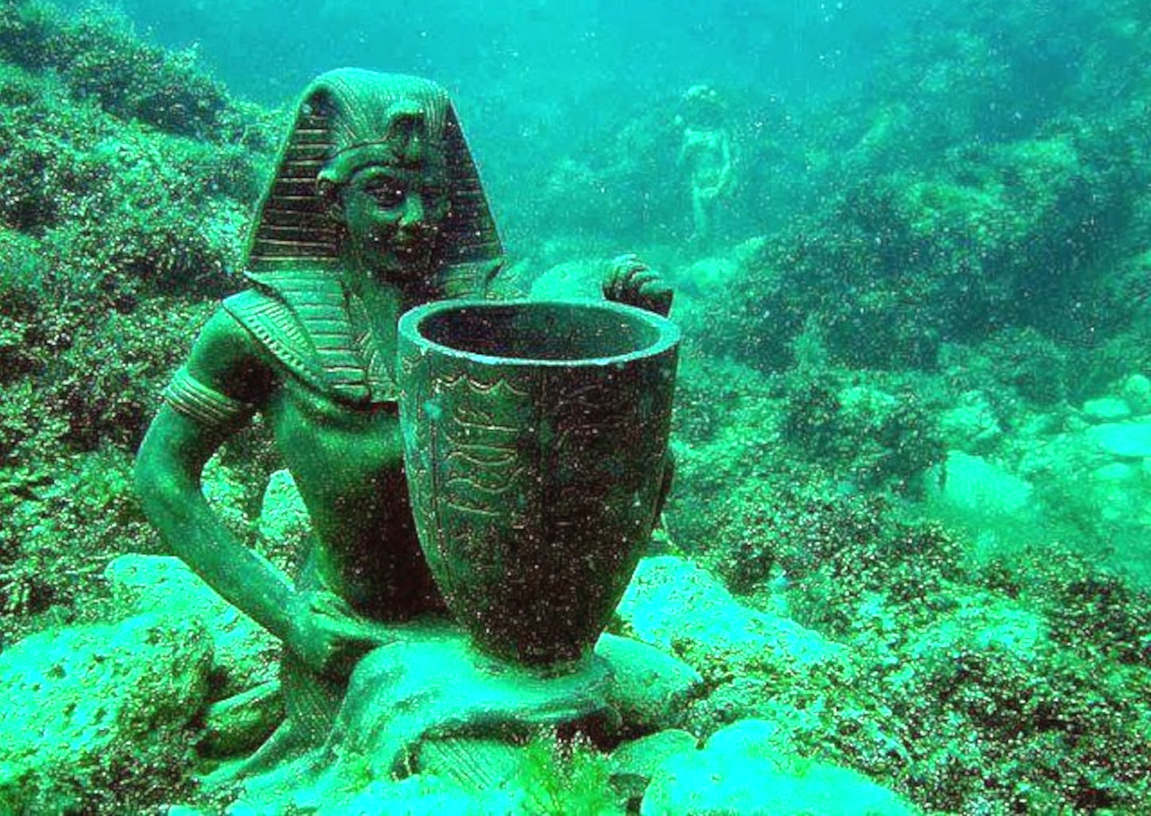
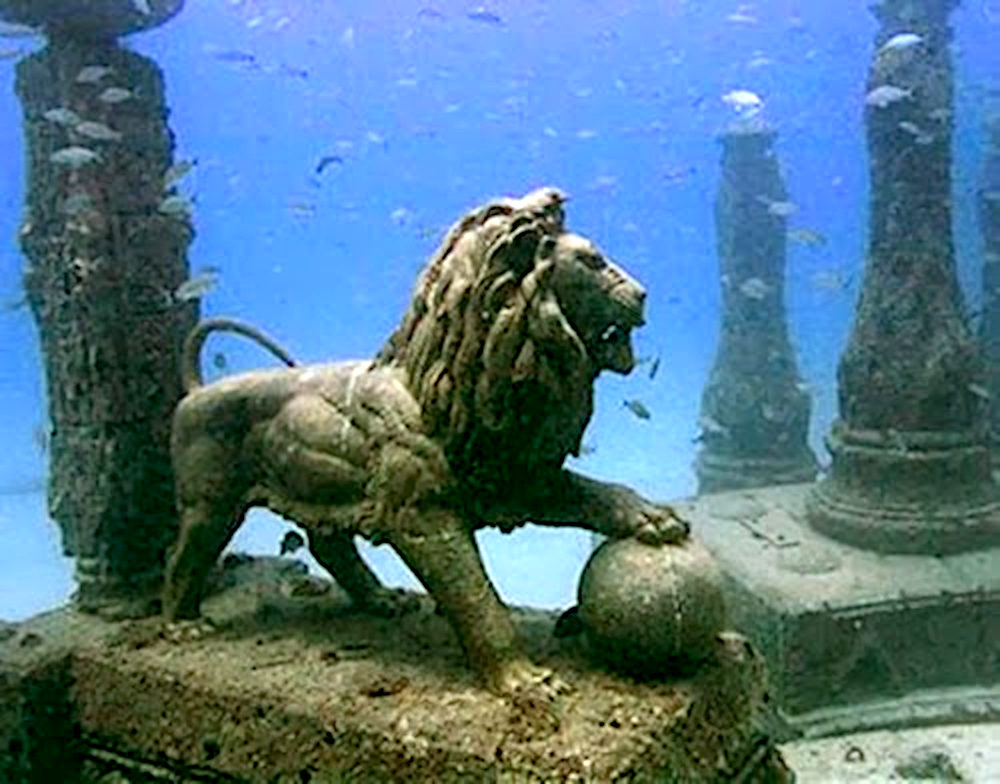
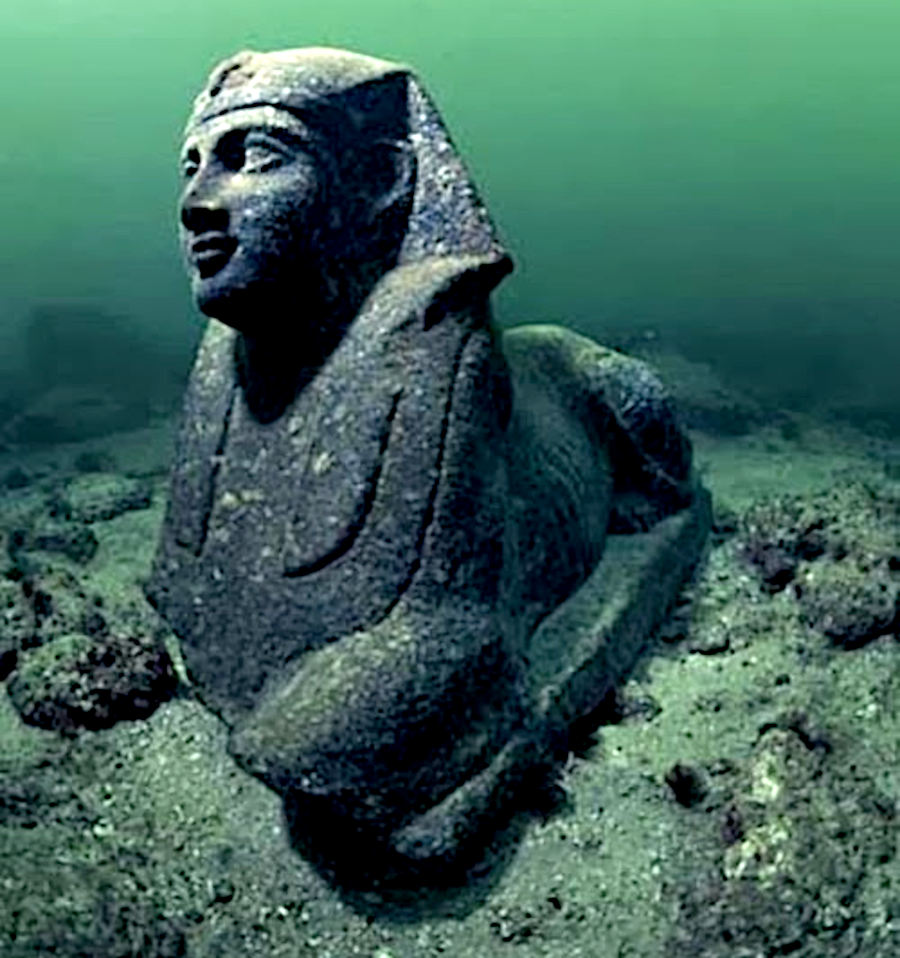
Both
Outer and Inner spaces, are areas where humans cannot
breathe naturally. So cannot sustain human life. They are
alien to us. But the life beneath the sea sustains life on
land reliant on oxygen. Hence, is vital to human survival.
With
our intelligence, we have artificially overcome our natural
evolutionary barriers, to travel faster over water, and fly
at supersonic speeds. We have even escaped our atmosphere
into space, and gone to the Moon and
back, as Jules Verne predicted. We have also been underwater
in submarines, just as in '20,000
Leagues Under the Sea' and to the bottom of the ocean in
bathyspheres.
And
now we use remotely operated unmanned vehicles with cameras
and sensors, to explore without breathing apparatus.
Enabling us to re-discover wrecks like the Titanic and
Ernest Shackleton's 'Endurace,' recently discovered on the
5th March 2022, 107 years after sinking in 10,000 feet of
water in the Weddell Sea.
If
the importance of our oceans was taught in schools, as part
of an educational
curriculum, they may not have become so polluted and
acidified as they are today. They may also be better
understood and documented.
Ocean awareness,
or literacy is not presently high on
academic agendas. It is a shocking statistic that we know
more about Outer Space, than we do our underwater kingdom.
Televised documentary programmes have done a great deal to
make life under the waves more popular, highlighting the
marine litter problem that is of major concern to marine
biologists. With plastic now seen in the remotest corners of
the globe and deepest trenches of the ocean.




